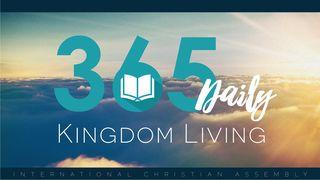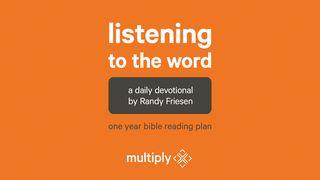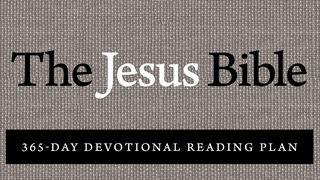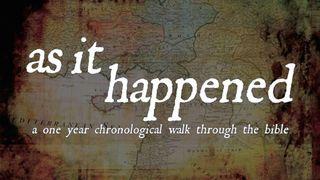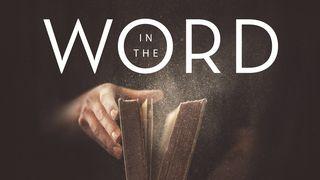Plan info
For The Love Of GodSample

HERE I REFLECT ON BOTH Isaiah 55 and Matthew 3, for they overlap.
(1) In the light of the Servant’s triumph in Isaiah 53 and the covenantal promises of peace in Isaiah 54, Isaiah 55 opens with a wonderful invitation. The thirsty and the hungry are invited to a glorious banquet where the fare is free (Isa. 55:1-3a). The theme of covenant continues: these blessings are bound up with “an everlasting covenant” (Isa. 55:3b) that the Lord enacts with his people—and this time the covenant is seen as the fulfillment of promises to David (see meditation for June 22). God made David “a witness to the peoples, a leader and commander of the peoples” (Isa. 55:4); he conquered the nations around him and subjugated them to his rule, and thus to the rule of the Lord. Restored to the land, Israel does something similar: they “summon nations … because of the LORD your God, the Holy One of Israel” (Isa. 55:5). Their summoning of the nations is not by military prowess, but because of what the Lord is doing in their midst. Moreover, this covenant has a confirming sign. The Noahic covenant had the sign of the rainbow; the Abrahamic, circumcision; the Sinai covenant, the sprinkled blood. The everlasting covenant has as its eternal sign a transformed universe (Isa. 55:12-13; cf. Isa. 2:2-5; 11:1-16).
(2) Matthew affirms that John the Baptist sees himself as a “voice of one calling in the desert, ‘Prepare the way for the Lord, make straight paths for him’ ” (Matt. 3:3), citing Isaiah 40:3. In the meditation for June 8, I briefly explained that passage as the Lord’s (metaphorical) smoothing of the way for the people of God to return to the land, part of a passage of rich comfort. The return of the people of God displays the glory of God. But it is possible to read the passage a slightly different way, no less concerned for the glory of the Lord. On this view it is not the people who cross the wilderness, but the sovereign Lord himself who “comes with power” (Isa. 40:10) like a potentate whose path his underlings smooth for him. John the Baptist claims that function: he prepares the way “for the Lord”—which in his setting identifies Jesus as the sovereign Lord.
(3) John calls the people of his day to radical repentance, making repentance, not literal descent from Abraham, critical for membership in God’s people (Matt. 3:7-10). Similarly in Isaiah 55, the promised covenantal blessings are for those who forsake their wicked ways and thoughts and turn to the Lord for mercy and free pardon (Isa. 55:6-7). For our thoughts are not God’s thoughts (Isa. 55:7-8)—a confession that admires God’s thoughts not for their transcendence but for their lofty purity.
About this Plan

A daily devotional for discovering the riches of God's word: For the Love of God is a daily devotional designed to walk a person through the Bible in a year while assisting the reader in discovering the riches of God's W...
More
We would like to thank The Gospel Coalition for providing this plan. For more information, please visit: thegospelcoalition.org


